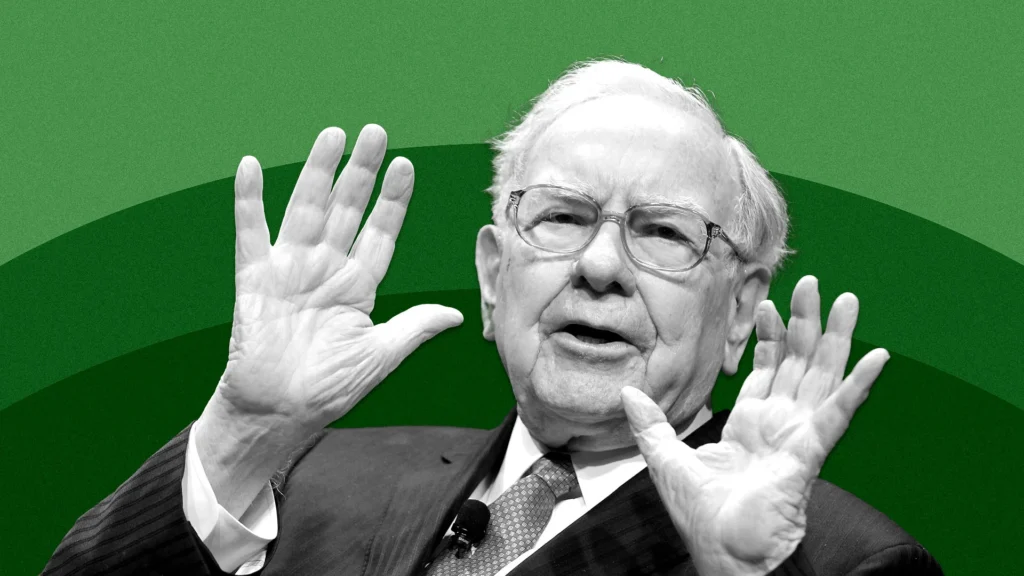Warren Buffett often shies away from current events, but he recently shared some candid thoughts on tariffs and their impact on the U.S. economy. In an era dominated by political debates and financial uncertainty, Buffett’s remarks have grabbed attention. Known for his foresight, his opinions on government-imposed tariffs have sparked interest among economists and policymakers alike. It’s not just about numbers; it’s about the nation’s economic future.
In a recent interview with CBS Sunday Morning’s Norah O’Donnell, Buffett avoided a deep dive into economic predictions, knowing his words could sway markets. But when it came to tariffs, his perspective was clear: they’re akin to an ‘act of war.’ Buffett stresses the long-term implications for consumers and the economy as a whole. With Trump’s tariffs on Canada and Mexico looming, it’s a hot topic.
The Tariffs Debate
Buffett’s comments on tariffs come at a critical time. President Trump announced a 25% tariff on goods from Canada and Mexico. The business magnate views tariffs as disruptive to economic stability. He believes their effects translate into higher prices for consumers, essentially a tax on everyday goods. This ongoing debate reaches far beyond policy, touching the lives of many American families.
Economic Consequences
Increased tariffs may also lead to inflation. Everyday items could become more expensive, and the cost of living might rise. This scenario puts a strain on household budgets. Therefore, consumers may need to adjust their spending habits, potentially affecting economic growth.
A Tug-of-War with Inflation
Buffett’s point is clear: questioning ‘And then what?’ is essential in economic policy. Understanding the cascading effects of tariffs helps predict future challenges. Economists must weigh immediate benefits against potential long-term repercussions.
The Role of the External Revenue Service
Despite these complications, the proposed agency doesn’t yet exist. The idea remains controversial, with many questioning its feasibility. Logistical challenges and international response are key concerns that need addressing before moving forward.
Buffett’s Perspective vs. Trump’s Vision
Many Americans side with Buffett, trusting his financial wisdom. However, Trump supporters argue for a stronger domestic economy, believing tariffs bolster local industries. This debate isn’t just about economics; it reflects differing visions for America’s future.
The Unpredictable Markets
This unpredictability impacts not just big corporations but also smaller businesses. They must brace for changing circumstances, adjusting operations to align with new economic realities.
Lucky to be Born Here
Buffett describes himself as fortunate to be American. He believes the country’s economic framework supports growth and innovation, essential drivers of prosperity. This perspective underlines his enduring faith in the nation’s resilience.
The Bigger Picture
The broader context of tariffs underscores their complexity. Economists must explore all dimensions, balancing economic objectives with global responsibilities.
A Tense Economic Environment
Balancing domestic goals with international responsibilities remains crucial. The global economy is interconnected, and policies must reflect this reality.
Wrapping Up with Wisdom
Buffett’s conversation with O’Donnell highlights a key economic debate. His insights prompt reflection on the real cost of tariffs and their broader implications. By questioning conventional wisdom, Buffett encourages a deeper understanding of economic policies.
Buffett’s Conclusions
This discourse invites broader conversations about economic policy. Buffett’s perspective challenges assumptions, prompting reassessment of strategies. The debate continues, influencing future policy directions.
Warren Buffett’s insights on tariffs shed light on complex economic issues. His warnings about their potential impact encourage a deeper look into policy decisions. As the U.S. navigates its economic future, understanding the nuances of tariffs remains crucial. Buffett’s cautionary words serve as a reminder of the interconnectedness of economic actions.





